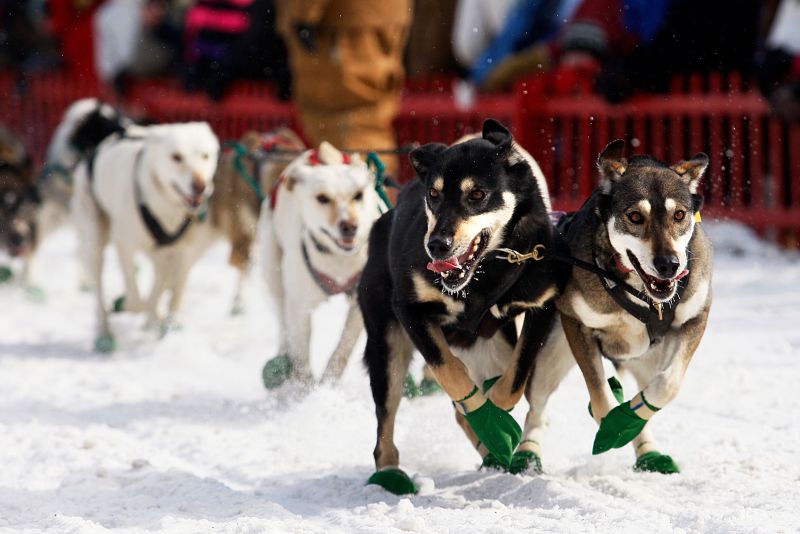
Longest sled dog race in eastern US is canceled because there’s not enough snow
The longest sled dog race in the eastern United States is canceled this year due to insufficient snow coverage, which organizers say could make trail conditions dangerous for participants.
The annual Can-Am Crown International Sled Dog Races, which were slated to begin March 2, are held in Fort Kent, Maine, more than 300 miles north of Portland near the US-Canadian border. For 250 miles, the race course runs deep into the vast Allagash Wilderness with multiple viewing points for the thousands of spectators the event attracts.
But the Fort Kent area has had roughly 4 feet of snow since October 2023 — around 2 feet below average through February, according to the National Weather Service. The region, like much of the northern tier of the US, is experiencing its warmest winter on record, with high temperatures averaging around 6 degrees Fahrenheit above average.
Organizers said a heavy rainstorm is in the forecast that, coupled with a period of unseasonably warm weather, could rapidly deteriorate the trails even further.
Can-Am President Dennis Cyr said in a statement the decision to cancel the winter sport tradition this year was made “with heavy hearts but necessary caution.”
“The health and safety of our participants, both the dedicated mushers and their incredible dogs, are our top priorities,” Cyr said. “The unique challenges presented by the lack of snow have led us to conclude that moving forward with this year’s race could compromise the well-being of all involved.”
It’s not the first time the event has been called off or altered. Since the race first started in 1992, organizers have had to occasionally reroute due to treacherous weather. In 1994, thinning ice ended the race early, while a severe cold snap in 2017 forced organizers to make last-minute changes to the usual route, including limiting a number of downhill slopes. The 2021 races were also canceled during the Covid-19 pandemic.
Scientists say the climate crisis will significantly impact snow conditions across the Northeast. Decreasing snowfall and a shorter snow season are expected due to warmer temperatures that will cause more precipitation to fall as rain instead of snow.
Less snowpack carries a remarkable toll for places like Fort Kent that rely on winter recreational activities, including skiing and snowboarding, as key economic drivers. Many ski resorts in the Northern Hemisphere have already been facing such challenges.
The Can-Am organizers remain hopeful that the much-anticipated event will be back in 2025.
“This race is not just an event; it’s a tradition that celebrates the remarkable bond between mushers and their sled dogs, as well as the rugged beauty of Maine’s winter landscape,” Can-Am Vice President Sarah Brooks said in a statement. “However, we must put the safety of our participants first.”
